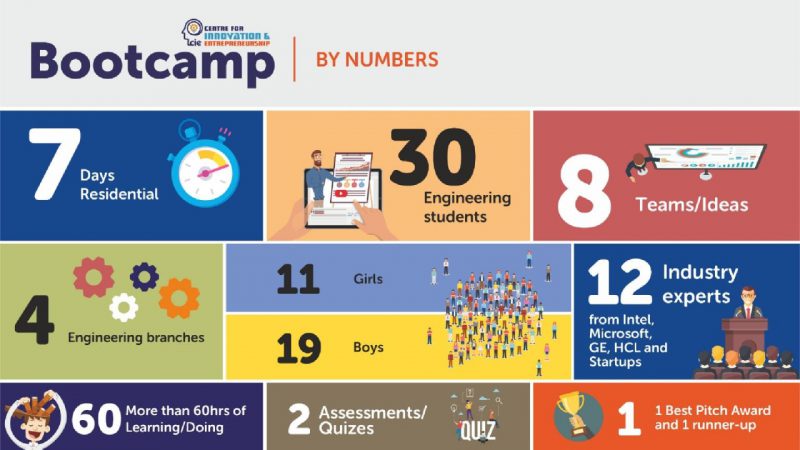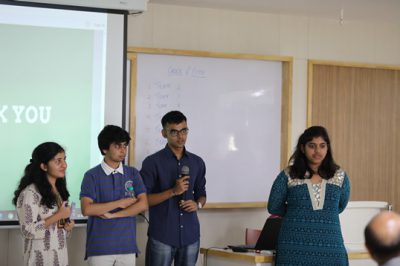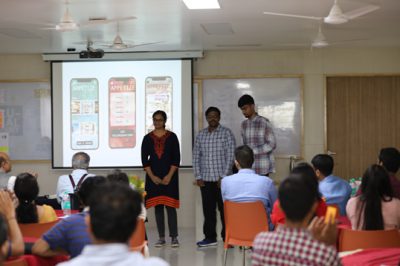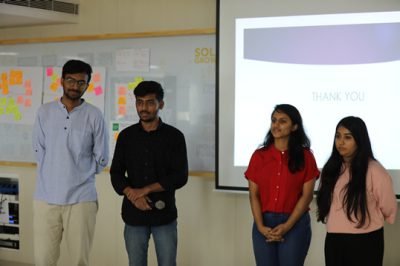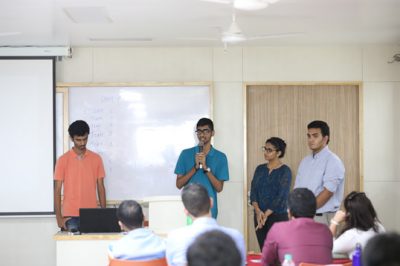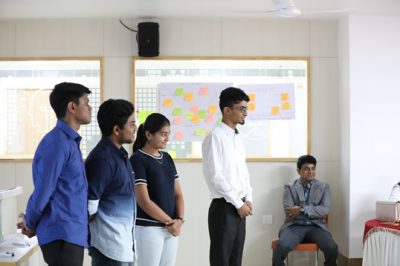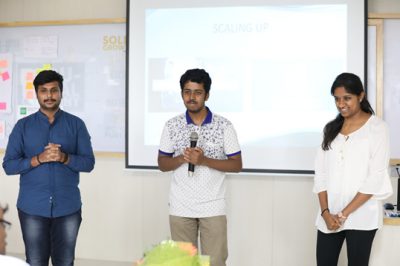Suhas Ghante focused around Business Development. He started by making the students aware of how outdated the traditional marketing funnel was and how the new funnel is much better. The cyclic process of exploring, researching, evaluating, engaging, purchasing, using and sharing works best now.
Suhas went on to enthral them with a session called “Hacking the Funnel”, where he shared some business hacks which he had picked up, through his experiences. One such hack was to use a “No” question, when an investor did not reply, to actually trigger a response from him/her. He stated how a single, untimely, almost rude question, something like, “Should we postpone discussion for the time being?” can turn the tables in your favour. He mentioned how important it is to know what is actually important! He went on to talk about handling situations which arise during meetings. He shared some Negotiation Hacks from experience which have been found to work really well.
The students were told how important Etiquette was and to be aware of your receiver’s personality. He provided them with a lot of software and book recommendations, which was very useful. He concluded by stressing on the aspect of always doing your homework before any meeting and how it would pay off.
